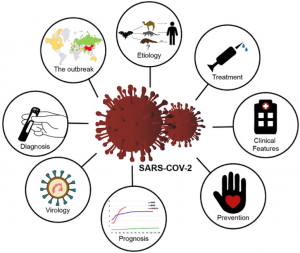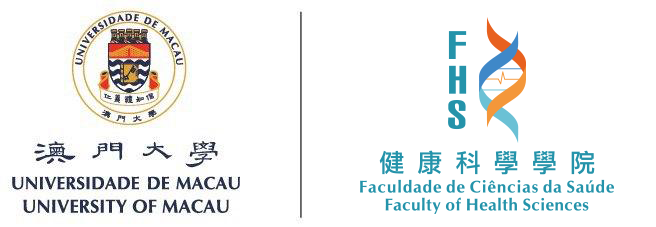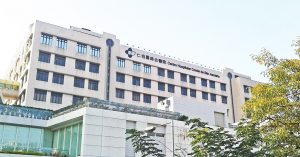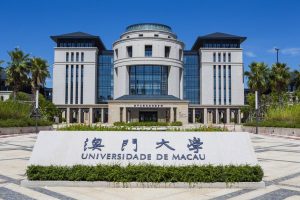The International Journal of Biological Sciences recently published a special issue titled ‘The global battle against SARS-CoV-2 and COVID-19’, which reports the achievements and experience of Macao’s public health sector in the fight against the novel coronavirus epidemic. The Conde de São Januário Hospital Centre (Centro Hospitalar Conde de São Januário) in Macao proposed that patients infected with the novel coronavirus should only be discharged from the hospital upon showing negative results from two separate fecal nucleic acid tests. The related findings are very valuable for the global anti-epidemic effort. Other articles published in the special issue include a report on an epidemiological survey conducted by a team led by doctors of the Wuhan Mental Health Centre, a study from the University of Hong Kong’s (HKU) Faculty of Medicine, and a series of articles from the University of Macau’s (UM) Faculty of Health Sciences (FHS) and Institute of Chinese Medical Sciences (ICMS).
As the sudden outbreak of the novel coronavirus quickly spread across continents and became a global pandemic, Macao, a world-class tourist destination, was also severely hit. In response to the epidemic, the newly inaugurated government of the Macao Special Administrative Region (SAR) took decisive measures and successfully controlled the spread of the epidemic in the SAR, with only ten confirmed cases and no emergence of new confirmed cases for over 40 days during the first stage of the epidemic. So far, all ten confirmed patients from Macao and outside the city have been cured and discharged from the hospital. A team led by Iek Long LO, a thoracic and pulmonary specialist at the Conde de São Januário Hospital Centre, the hospital in Macao that treats patients infected with the coronavirus, proposed that patients should only be discharged from the hospital upon showing negative results from two separate fecal nucleic acid tests. The related findings are very valuable for the global anti-epidemic effort. Other articles published in the special issue include a report on an epidemiological survey conducted by a team led by doctors Wentian LI and Yi LI of the Wuhan Mental Health Centre, and a study from a research team led by Prof. Dongyan JIN of HKU’s Faculty of Medicine, which provides an overview of the existing knowledge about seven human coronavirus (HCoVs).
The special issue also published a series of articles written by UM faculty members, namely FHS professors Chuxia DENG, Hanming SHEN, Ren-He XU, Yutao XIANG, and Qi ZHAO; as well as ICMS professor Xin CHEN and his team. UM experts shared their understanding of the SARS-CoV-2 virus and the COVID-19 virus from different perspectives, including epidemiology, etiology, virology, diagnosis, the development of therapeutic strategies, the prognosis and prevention of the disease, as well as mental health service. Through this multi-angle approach, they provided a comprehensive view on what has been learned and what is yet to be learned about the virus and the disease. One of these articles discusses the important role of Chinese medicine in treating patients infected with the virus. According to the article, more than 85 per cent of patients infected with COVID-19 in China have received traditional Chinese medicine (TCM) treatment. The study also presented clinical evidence showing the beneficial effects of using TCM in the treatment of the patients. For more information, please visit https://www.ijbs.com/v16i10.
The International Journal of Biological Sciences publishes original articles, reviews, and short research communications in all areas of biomedicine, including cell biology, developmental biology, structural biology, microbiology, molecular biology, molecular genetics, biochemistry, biotechnology, biodiversity, ecology, marine biology, plant biology, and bioinformatics. Its average impact index (impact factor) in the past five years was 4.306, and its real-time impact factor in 2019 was over 5.1.

1. The International Journal of Biological Sciences has published the anti-epidemic achievements of UM and Conde de São Januário Hospital Centre in Macao



